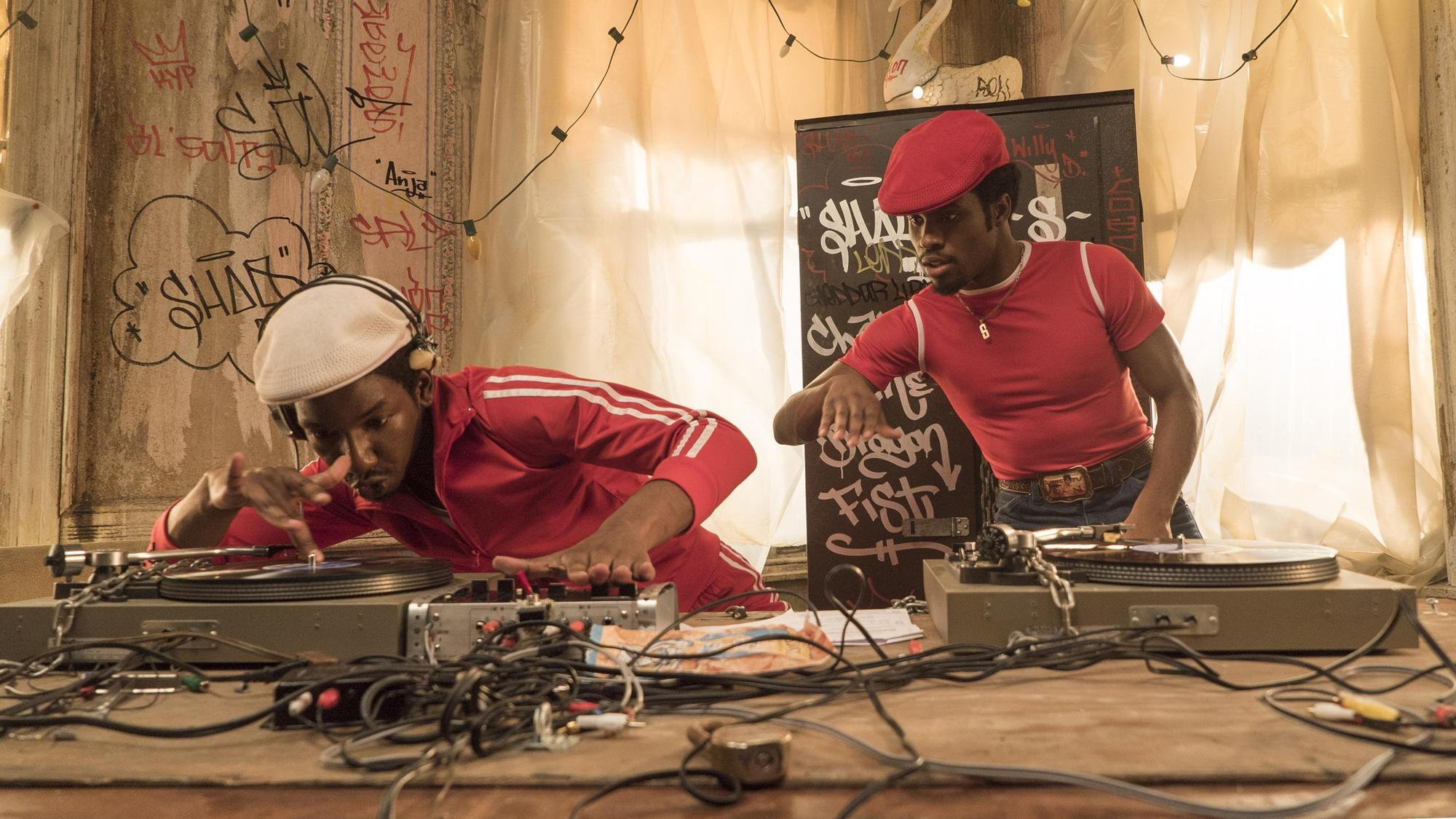Style Wars (1983): Earlier this week, Jaden Smith and Raury premiered a new collaborative track, “Losing Your Mind,” on Ebro’s Beats1 radio show. Jaden shared a bit more insight into his Get Down character, Dizzy, a graffiti artist, and Ebro chimed in: “A lot of people don’t realize that b-boying, graffiti writing, and DJing were the founding things before they started looping the beat and creating the breaks.” Style Wars, a 1983 documentary produced for PBS, explores this side of early hip-hop culture; it chronicles kids for whom subway cars were blank canvases. The film follows prolific young writers like Kase2 and IZ the Wiz, but also profiles NYC Transit Police officers and controversial Mayor Ed Koch. “Is that an art form?” detective Bernie Jacobs asks, pointing to letters on the back of a train car. “I don’t know, I’m not an art critic. But I can sure as hell tell you that it’s a crime.” Either way, it’s trippy to watch such brightly colored train cars — not simply covered in hieroglyphic tags, but elaborate murals, too — snake through the city.
Breakin ‘N’ Enterin’ (1983): Though hip-hop was born in the South Bronx, its sounds and styles quickly spread across the country. This 1983 documentary chronicles LA’s nascent B-Boy scene, and even features a young Ice-T (how good is his shearling wrist cuff and leather daddy hat combo?). Viewers have compared the two coasts’ divergent dance styles — while New York b-boys mostly focused on floor work, their SoCal counterparts popped and locked.
Beat This: A Hip-Hop History (1984): This BBC documentary was among the first crop of hip-hop documentaries, and consequently, is a bit dated — it’s narrated in rhyme for godsakes (choice line: “From Uptown to Fifth Avenue, the journey took a heck of a crew”). Yet Beat This is still a unique window into some of the movement’s most formative moments; it contains original footage from DJ Kool Herc’s Bronx block parties and Afrika Bambaataa’s futuristic sonic dispatches from “Planet Rock.” The intergalactic hip-hop alien was Malcolm McLaren’s introduction to the scratching DJ scene; Beat This contains an interview with the punk pioneer about his first voyage to the South Bronx in search of an opening act for Bow Wow Wow. Considering McLaren’s hip-hop stylings have been sampled by everyone from Blood Orange to Drake, it’s well worth the watch.
Big Fun in the Big Town (1986): The Dutch took a look at NYC’s hip-hop scene a few years later in 86, when Run-DMC and their adidas shelltoes were not simply fixtures of a local subculture, but icons of an increasingly global movement. Big Fun features intimate interviews with Grandmaster Flash, LL Cool J, and Biz Markie, but also includes footage of local high schoolers at Harry Truman High in the North Bronx. There, teens speak powerfully about creating their own urgent musical movement on the street in the face of institutional disenfranchisement.
Stolen Moments: Red Hot + Cool (1994): This documentary is a bit of an outlier on our list, as it doesn’t take things back to the South Bronx 70s. The 1994 film is an equally important hip-hop history, though. Released at the devastating apex of New York City’s AIDS epidemic, Stolen Moments explores how the disease impacted African American communities, but does so through the lenses of creativity and popular culture. While many other hip-hop projects we’ve listed examine how disco records informed early hip-hop grooves, Stolen Moments focuses on the intersections between hip-hop and jazz, gospel, funk, and more. “Hip-hop is a form of music that embraces all the forms of music that have come before it,” Gangstarr’s Guru explains in the first few minutes of the film. “Chuck D. calls rap ‘urban CNN.’ We’re all just kicking in different things that have to do with the whole picture of what’s going on with the youth today. That’s what rap is the voice of.”
Once Upon a Time in New York: the Birth of Hip-Hop, Disco, and Punk (2007): BBC took another stab in 2007, this time without the rhyming narration. Rather than focusing on one movement, Once Upon a Time in New York explores the most exciting sounds and styles that emerged throughout the city in the 1970s, and examines their points of intersection. Downtown was a perfect punk incubator, Midtown was disco’s kingdom, and Uptown was hip-hop’s hotbed. As narrator Richard O’Brien said: “In 1970s New York, you could be whoever you wanted to be.”
Founding Fathers: The Untold Story of Hip-Hop (2009): This 2009 documentary challenges hip-hop’s long accepted South Bronx birthplace by checking in with early figures in further flung boroughs like Brooklyn and Queens. The film collects interviews with these DJs, emcees, and promoters as well as incorporates archival footage, photographs, and flyers to paint a more vivid picture of the emergent hip-hop scene beyond the Bronx. Because of the doc’s challenge to Grandmaster Flash and Kool Herc, it’s become quite controversial in certain circles; nevertheless, Founding Fathers is an interesting alternative history lesson that extends all the way back to Louis Armstrong.
Rubble Kings (2015): Between 1968 and 1975, the Bronx was in literal ruins; NYC was on the brink of bankruptcy, crime rates were high, and following the assassinations of key civil rights leaders, rage was at a tipping point. Rival gangs ruled the borough (and later became the basis for cult classic The Warriors). Rubble Kings explores how this cauldron of anger simmered to peace, and how this unification lead to creative self expression through music, dance, and art. If you’ve had your fill of 80s Kangol buckets, tailored tracksuits, and pique polos, look to Rubble Kings for an earlier chapter of street fashion — a time when fringe, studs, and biker leather looks reigned supreme. This one’s technically not on YouTube, but is available to watch on Netflix. If you ask nicely, we might give you our friend’s neighbor’s aunt’s password.
Credits
Text Emily Manning
